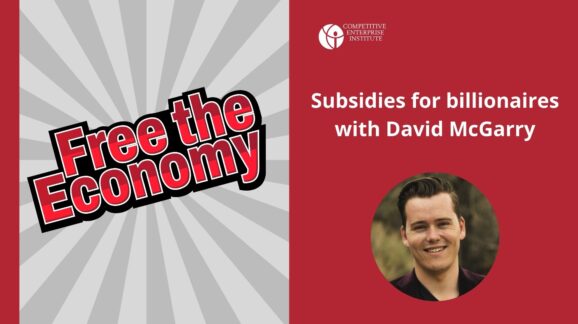There are two main areas in which Congress can enact meaningful reform. The first is to rein in regulatory guidance documents, which we refer to as “regulatory dark matter,” whereby agencies regulate through Federal Register notices, guidance documents, and other means outside standard rulemaking procedure. The second is to enact a series of reforms to increase agency transparency and accountability of all regulation and guidance. These include annual regulatory report cards for rulemaking agencies and regulatory cost estimates from the Office of Management and Budget for more than just a small subset of rules.
In 2019, President Trump signed two executive orders aimed at stopping the practice of agencies using guidance documents to effectively implement policy without going through the legally required notice and comment process.
Featured Posts

Blog
The week in regulations: Bird hunting and food coloring
The Federal Register’s website became less transparent about rule counts and other data. President Trump threatened to send the military into a third city. The…

Blog
Free the Economy podcast: Subsidies for billionaires with David McGarry
In this week’s episode we cover White House intervention in corporate ownership, the nation’s falling economic freedom ranking, and welcome new…

News Release
Federal appeals court rules on NLRB unconstitutionality
The 5th Circuit Court of Appeals today issued a ruling suggesting the structure of the federal government’s top labor dispute regulator, the National Labor Relations…
Search Posts
Blog
New CEI Video: Eliminating Never Needed Regulations to Help with Recovery
In a new CEI video, Kent Lassman talks about three things agencies can do rein in regulations that are hindering the COVID-19 response and making…
Blog
This Week in Ridiculous Regulations
August’s 2020 disaster list so far includes a massive warehouse explosion in Beirut that killed more than 100 people and Hurricane Isaias. In positive news,…
Blog
Cautious Optimism on July Jobs Numbers: Prudence, Resilience Will Aid Recovery
In July, 1.8 million new jobs were created, and the unemployment rate dropped to 10.2 percent. That is a welcome follow-up to the second quarter’s…
Blog
When Spending Is Regulation: The Grand Unification Theory of Government Growth
Alongside helplessness in the face of a looming $27 trillion debt, debating administrative state policy hasn’t been much help in forestalling federal government growth.
Blog
An Executive Order 13,891 Guidance Document Portal Update: Another Lap to Go
President Donald Trump’s October 9, 2019 Executive Order 13,891 (E.O. 13,891) and a subsequent White House Office of Management directive to amplify and clarify it…
Blog
This Week in Ridiculous Regulations
What a week. COVID-19 deaths passed 150,000. Second-quarter GDP declined 9.5 percent from a year ago and 7 percent from the previous quarter. In more uplifting…
Staff & Scholars

Clyde Wayne Crews
Fred L. Smith Fellow in Regulatory Studies
- Business and Government
- Consumer Freedom
- Deregulation

Ryan Young
Senior Economist
- Antitrust
- Business and Government
- Regulatory Reform

Fred L. Smith, Jr.
Founder; Chairman Emeritus
- Automobiles and Roads
- Aviation
- Business and Government

Sam Kazman
Counsel Emeritus
- Antitrust
- Automobiles and Roads
- Banking and Finance

Marlo Lewis, Jr.
Senior Fellow
- Climate
- Energy
- Energy and Environment